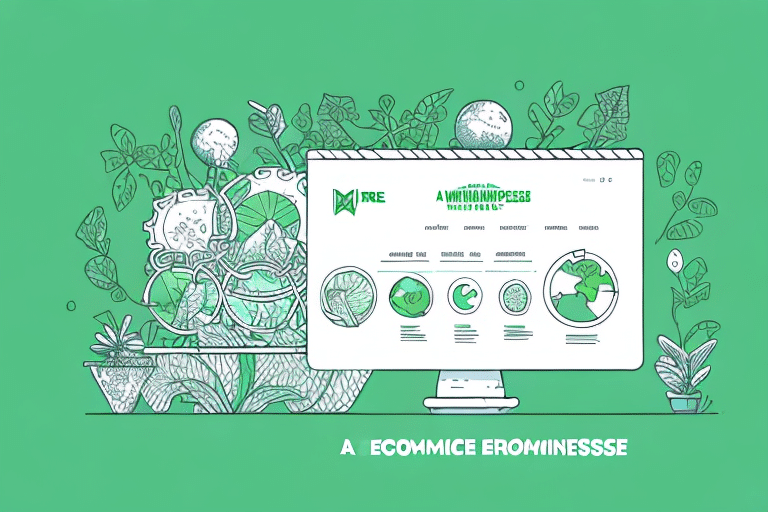Sustainable Ecommerce: Enhancing Profitability through Green Operations
In the evolving landscape of ecommerce, sustainable practices have emerged as a pivotal factor influencing a company's bottom line. Adopting green operations not only benefits the environment but also drives financial performance, brand reputation, and customer loyalty. This comprehensive guide explores the multifaceted advantages and strategic implementations of sustainability in ecommerce.
Benefits of Sustainable Ecommerce
Cost Reduction and Increased Efficiency
Implementing sustainable practices can lead to significant cost savings. By optimizing energy usage and reducing waste, ecommerce businesses can lower their operational expenses. For instance, energy-efficient lighting and equipment can decrease utility bills, while streamlined supply chains minimize excess inventory and reduce storage costs.
Improved Brand Image and Customer Loyalty
Consumers are increasingly favoring brands that demonstrate environmental responsibility. A Harvard Business Review study found that 70% of consumers consider a company's sustainability practices when making purchasing decisions (Harvard Business Review). By showcasing commitment to sustainability, ecommerce businesses can enhance their brand image and foster long-term customer loyalty.
Innovation and Competitive Advantage
Adopting sustainable practices encourages innovation. Companies are motivated to develop eco-friendly products and explore new business models, thereby gaining a competitive edge. Sustainable innovation can lead to unique value propositions that differentiate a brand in a crowded marketplace.
Boosting Sales through Sustainability
Attracting Environmentally Conscious Consumers
As awareness of environmental issues rises, so does the demand for sustainable products. Ecommerce businesses that prioritize sustainability can attract a dedicated customer base willing to pay a premium for eco-friendly offerings.
Cost Savings Passed to Consumers
Efficiency gains from sustainable practices often translate to lower costs, enabling businesses to offer competitive pricing. This not only makes eco-friendly products more accessible but also broadens the market reach.
Building Trust and Brand Loyalty
Transparent sustainability efforts build trust with consumers. Brands that communicate their environmental initiatives effectively can strengthen customer relationships and encourage repeat business.
Reducing Your Carbon Footprint in Ecommerce
Adopting Renewable Energy Sources
Transitioning to renewable energy is a cornerstone of sustainable ecommerce. Utilizing solar or wind power can significantly reduce a company's carbon footprint. According to the International Energy Agency, renewable energy could account for nearly 95% of the increase in global power capacity through 2026.
Optimizing Delivery and Logistics
Efficient delivery routes and logistics management can minimize transportation emissions. Leveraging technology to plan optimal routes reduces fuel consumption and lowers greenhouse gas emissions.
Sustainable Supply Chain Management
Implementing sustainable practices throughout the supply chain, such as selecting eco-friendly suppliers and reducing packaging materials, contributes to overall carbon footprint reduction.
Implementing Sustainable Practices in Ecommerce
Conducting an Energy Audit
Begin by assessing current energy usage to identify areas for improvement. An energy audit helps pinpoint inefficiencies and provides a roadmap for reducing consumption.
Waste Reduction Programs
Implementing waste reduction strategies, such as recycling and reusing materials, can significantly decrease operational waste. This not only benefits the environment but also reduces disposal costs.
Eco-Friendly Packaging Solutions
Choosing sustainable packaging materials, such as recycled paper or biodegradable plastics, can lower environmental impact and appeal to eco-conscious consumers.
Green Packaging and Renewable Energy
Eco-Friendly Packaging Options
- Biodegradable plastics
- Recycled paper-based products
- Mushroom-based materials
These materials not only reduce environmental harm but can also be cost-effective in the long term by minimizing waste and disposal expenses.
Integration of Renewable Energy Technologies
Investing in renewable energy technologies, such as solar panels and wind turbines, can provide long-term cost savings and reduce dependence on fossil fuels. Additionally, emerging technologies like blockchain and IoT devices can further enhance energy management and sustainability efforts.
Communicating Sustainability to Customers
Transparent Messaging and Branding
Effectively communicating sustainability efforts through clear messaging and branding is crucial. Highlighting eco-friendly practices on product pages and marketing materials can inform and attract customers.
Educating Consumers
Providing information about sustainable practices and the environmental benefits of products encourages consumers to make informed choices. Offering incentives for sustainable actions, such as discounts for eco-friendly shipping options, can further engage customers.
Building Trust and Credibility
Partnering with reputable environmental organizations and obtaining certifications can enhance credibility. Displaying certifications from entities like EPA or Global Good Fund reinforces a company's commitment to sustainability.
Measuring ROI and Future Trends
Tracking Financial and Environmental Metrics
Measuring the return on investment (ROI) of sustainable practices involves tracking both financial savings and environmental impact. Key metrics include reduced energy costs, waste diversion rates, and increased sales from eco-friendly products.
Adapting to Future Innovations
The future of sustainable ecommerce lies in continuous innovation. Advances in technology, such as AI-driven supply chain optimization and sustainable material development, offer new opportunities for enhancing sustainability efforts.
Case Studies of Successful Sustainable Ecommerce Companies
Examining successful examples like Patagonia and TOMS Shoes provides valuable insights into effective sustainability strategies. These companies have demonstrated that environmental responsibility can coexist with profitability and brand strength.
Conclusion
Sustainable ecommerce operations offer substantial benefits, from cost savings and increased efficiency to enhanced brand reputation and customer loyalty. By implementing and effectively communicating sustainable practices, ecommerce businesses can not only contribute positively to the environment but also achieve long-term financial success. Embracing sustainability requires strategic planning and commitment, but the rewards make it a worthwhile investment for the future.




















